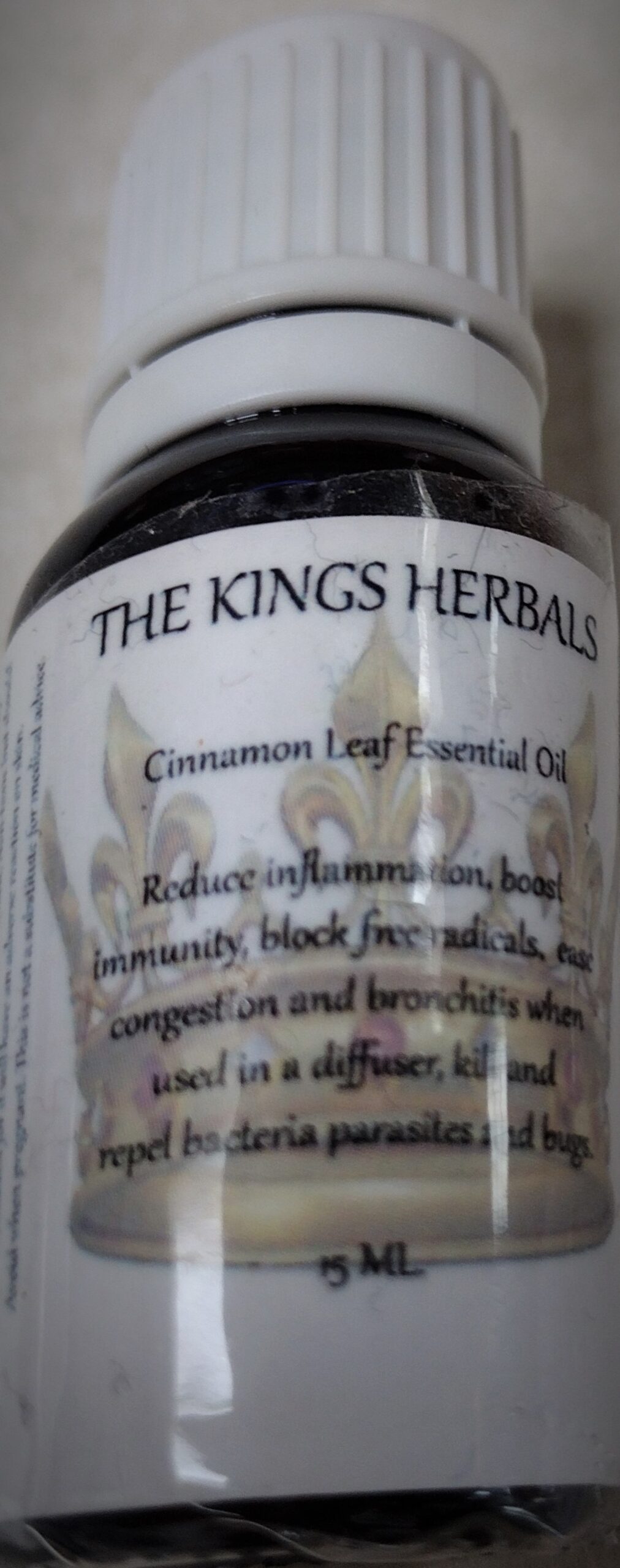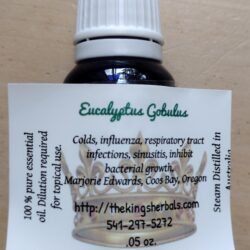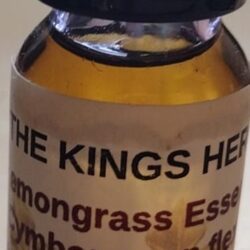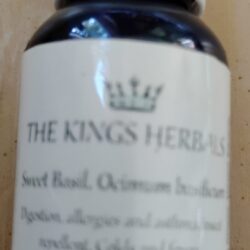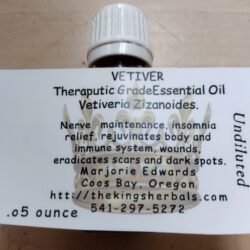Description
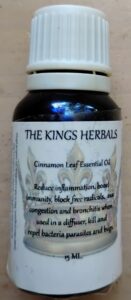

WHAT IS CINNAMON LEAF OIL?
Cinnamon leaf oils contain at least 80% phenols—organic aromatic compounds with a variety of antiseptic,
antimicrobial, antioxidant and anesthetic healing properties.
Cinnamon oil is also derived from the plant’s leaves and bark. Cinnamon bark oil is stronger-smelling and more
potent than leaf oil, which is musky in scent and lighter in color. Bark oil is highly refined and quite expensive,
making the leaf oil a more cost-effective and lightweight option.
BENEFITS OF CINNAMON LEAF OIL
This essential oil has been used for centuries by healers, massage therapists, herbalists and alternative medicine
health practitioners. Benefits include:
• Immune-boosting protection against colds and the flu
• Reduces inflammation
• Promotes anti-aging by blocking free radicals
• Kills and repels bacteria, parasites and bugs
• Reduces food cravings. Ground cinnamon spice helps regulate blood sugar
• Eases symptoms of congestion and bronchitis when used in a diffuser
• Relieves muscle aches and spasms when massaged into the skin in combination with a carrier oil or
lotion, or diluted into a warm bath
• Promotes stress-relief and improved brain function
• Improves mood and can help relieve depressive symptoms
• Boosts energy, mental focus and libido
• Improves blood circulation, oxygenation and metabolism
• Alleviates nausea and diarrhea
Cinnamon essential oils is called a HOT oil because like most essential oils or capsicum, for instance, will promise to burn the skin if not properly diluted.
General Guidelines for Diluting Cinnamon Essential Oil:
1. For Skin Application (Topical Use)
When using cinnamon oil topically, you should always dilute it to prevent skin irritation, as it can be quite potent.
- Recommended dilution:
- 1% dilution (for daily use, like on larger areas of the body): Use 1 drop of cinnamon oil per 1 teaspoon (5 mL) of carrier oil.
- 2% dilution (for occasional use, like targeted application on a small area): Use 2 drops of cinnamon oil per 1 teaspoon (5 mL) of carrier oil.
Note: For sensitive skin or for children, you may want to use a lower dilution, such as 0.5% or even 1 drop per 1 tablespoon of carrier oil.
2. For Aromatherapy (Diffusing)
If you’re using cinnamon essential oil in a diffuser, the concentration is much lower since the oil is being dispersed into the air.
- Recommended dilution: Add 3–4 drops of cinnamon oil to your diffuser with the amount of water recommended by the diffuser’s manufacturer (typically around 100-200 mL of water). This will provide a safe and pleasant scent without overwhelming the room.
4. For Bath or Foot Soak
Cinnamon oil should not be added directly to bathwater without a carrier oil, as it can irritate the skin.
- Recommended dilution: Add 2–3 drops of cinnamon essential oil to 1 tablespoon of carrier oil, then mix it into your bath water. You can also use a dispersing agent like Epsom salts to help the oil disperse more evenly.
-
Cinnamon Essential Oil Use Disclaimer
Cinnamon essential oil is a highly concentrated substance and should be used with caution. Please follow the guidelines below to ensure safe and effective use.
- Consult a Healthcare Provider: Always consult with a healthcare professional before using cinnamon essential oil, especially if you are pregnant, nursing, have a medical condition, or are taking medications. Essential oils may interact with certain health conditions or medications.
- Dilution Is Essential: Cinnamon essential oil must always be diluted with a carrier oil (such as coconut, jojoba, or olive oil) before applying it to the skin. Do not apply undiluted cinnamon essential oil directly to the skin as it can cause irritation, redness, or a burning sensation.
- Perform a Patch Test: Always conduct a patch test before using cinnamon essential oil on a larger area of the skin. Apply a small amount of diluted oil to a patch of skin (such as the inside of your elbow) and wait 24 hours to check for any adverse reactions, such as irritation, redness, or allergic response.
- Avoid Sensitive Areas: Cinnamon essential oil should never be applied near the eyes, mucous membranes (mouth, nose), or broken or irritated skin. If contact occurs, rinse immediately with a carrier oil (e.g., coconut or olive oil) and seek medical attention if necessary.
- Safe Use for Children: Cinnamon essential oil is generally not recommended for children under 2 years of age. For children aged 2-12, it is important to use a significantly lower dilution (around 0.5-1%). Always check for age-appropriate use and consult a pediatrician if in doubt.
- Use in Moderation: Due to its potency, cinnamon essential oil should be used in moderation. Excessive use can lead to skin irritation or respiratory discomfort, particularly in sensitive individuals.
- Ingestion: Do not ingest cinnamon essential oil without the guidance of a qualified healthcare provider. Essential oils are highly concentrated and may cause toxicity or adverse reactions when consumed inappropriately.
- Avoid During Pregnancy: Pregnant women should avoid using cinnamon essential oil, as it may stimulate contractions or cause other complications. Always consult a healthcare provider before using any essential oils during pregnancy.
- Storage: Store cinnamon essential oil in a cool, dry place, away from direct sunlight and heat. Ensure it is tightly sealed to prevent oxidation and maintain its potency.
- Quality and Purity: Ensure that the cinnamon essential oil you are using is pure and sourced from a reputable supplier. Some essential oils may contain additives or impurities that can cause irritation or be harmful to health.
By following these guidelines, you can safely enjoy the benefits of cinnamon essential oil while minimizing any risks. Always use essential oils responsibly and consult with a healthcare professional if you are unsure about their use in your specific situation.

